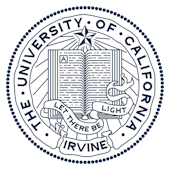Professor Maurer is a cultural anthropologist and sociolegal scholar. His most recent research looks at how professional communities (payments industry professionals, computer programmers and developers, legal consultants) conceptualize and build financial technology or “fintech,” and how consumers use and experience it. More broadly, his work explores the technological infrastructures and social relations of exchange and payment, from cowries to credit cards and cryptocurrencies. As an anthropologist, he is interested in the broad range of technologies people have used throughout history and across cultures to figure value and conduct transactions.
He is the Director of the Institute for Money, Technology and Financial Inclusion (www.imtfi.uci.edu). In that capacity, he coordinates research in over 40 countries on how new payment technologies impact people’s wellbeing. Currently, he is editing The Cultural History of Money, in six volumes, covering antiquity to the present. His research has had an impact on US and global policies for mobile payment and financial access, and it has been been discussed in venues ranging from Bloomberg BusinessWeek to NPR’s Marketplace and the Financial Times. He serves on the Board on Behavioral, Cognitive and Sensory Sciences of the US National Research Council, recently received a grant from the US National Science Foundation for a new project on blockchain technology and the law, and consulted with the Department of Treasury on the redesign of the US paper currency. He is a Fellow of the American Association for the Advancement of Science and received his BA from Vassar College and his MA and PhD from Stanford University.
He has particular expertise in emerging, alternative and experimental forms of money and finance, payment technologies, and their legal implications. He has published on topics ranging from offshore financial services to mobile phone-enabled money transfers, Islamic finance, alternative currencies, blockchain/distributed ledger systems and their implications for money and law, and the future of money. He was the founding co-director of the Intel Science and Technology Center in Social Computing.
His research has been supported by several grants from the National Science Foundation, the Russell Sage Foundation, and other sources. He is the editor of six collections, as well as the author of Recharting the Caribbean: Land, Law and Citizenship in the British Virgin Islands (1997), Pious Property: Islamic Mortgages in the United States (2006), and Mutual Life, Limited: Islamic Banking, Alternative Currencies, Lateral Reason (2005). The latter received the Victor Turner Prize in 2005. His new books, How Would You Like to Pay? How Technology is Changing the Future of Money, and Paid: Tales of Dongles, Checks and Other Money Stuff (Bill Maurer and Lana Swartz, eds), take up what he has called the “Cambrian explosion in payments,” the new technologies and business models in the payments industry and their implications for how we think about and use money, debt and social relationships. He has worked as a consultant in industry and the non-profit and philanthropic sector, and has also provided expert testimony on his areas of expertise. For more information on Professor Maurer’s current research projects, click on the Research link above.
Currently, he is Associate Editor of the Journal of Cultural Economy and serves as a member of the Editorial Boards of the Journal of Islamic Accounting and Business Research, Cultural Anthropology, Cultural Critique, and PoLAR: The Political and Legal Anthropology Review. From 2007-09 he was President of the Association for Political and Legal Anthropology, and served in 2009-10 as a member of the Program Committee for the Law and Society Association meetings in Chicago, IL. He was Chair of the Department of Anthropology at UC Irvine from 2005-06 until 2010-11. He was Associate Dean for Research and Graduate Studies in the Social Sciences from 2011-13.
In July 2013, he assumed the role of Dean of the School of Social Sciences at UC Irvine. He maintains an active side interest in the experimental history of the Irvine School of Social Sciences, and has been involved in several curatorial projects related to that history. He has also been involved in curatorial work more directly associated with his research, represented most recently in an ongoing exhibit on the past, present and future of money at the British Museum. In 2015 he was appointed to the Board on Behavioral, Cognitive and Sensory Sciences of the National Academy of Sciences. He was named a fellow of the American Association for the Advancement of Science in 2016.
Experience
-
–presentProfessor of Anthropology and Law, University of California, Irvine
- Website
- Article Feed
- ORCID
- Joined


